Reeling from the unexpected death of her husband, a widow begins to uncover her recently deceased husband’s disturbing secrets. A film by David Bruckner, starring Rebecca Hall, Sarah Goldberg, Evan Jonigkeit, Stacy Martin, and Vondie Curtis-Hall.
The NIGHT HOUSE
David Bruckner
(2021)
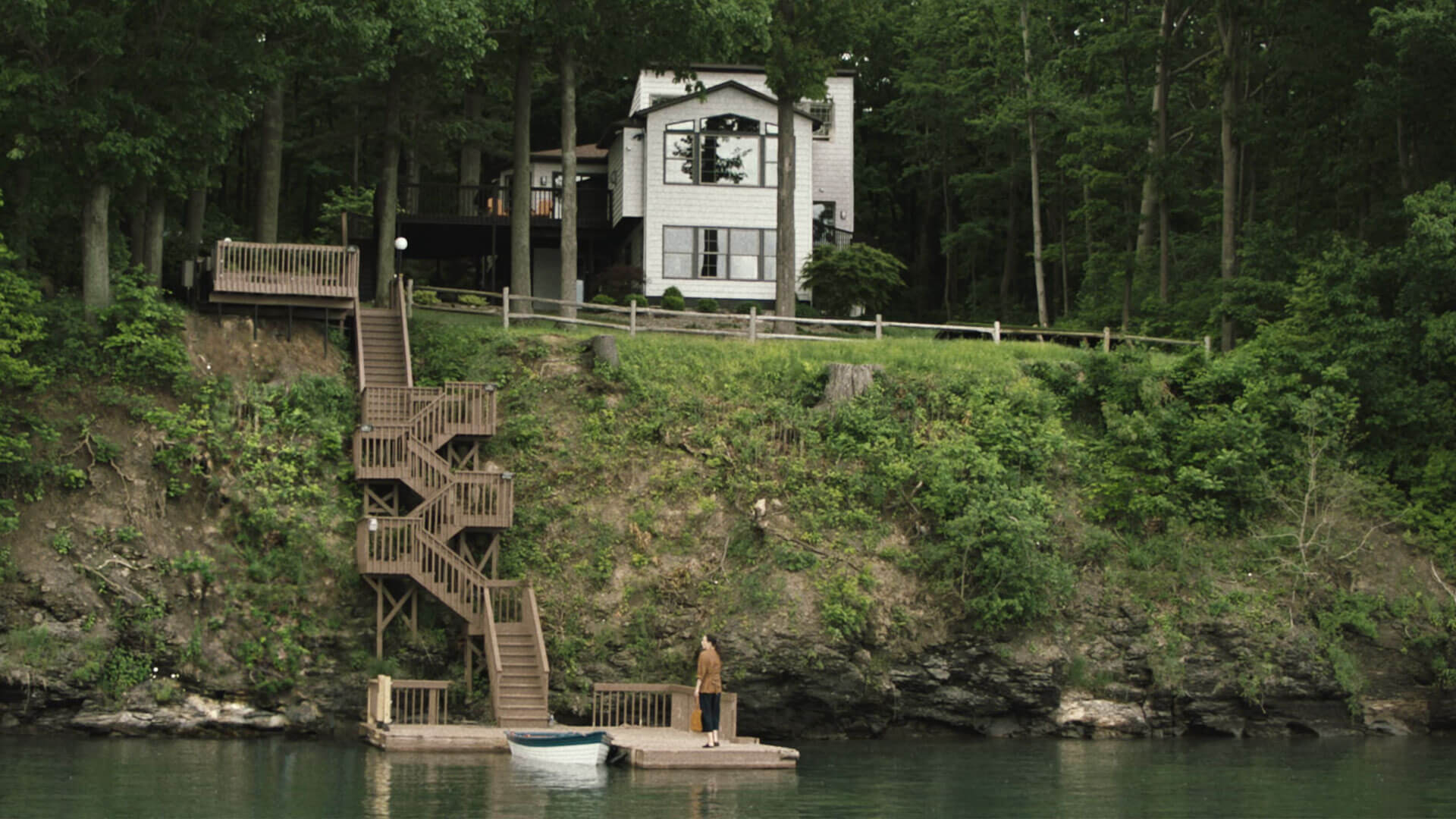
Beth (Rebecca Hall) has just unexpectedly lost her husband Owen (Evan Jonigkeit), after 14 years of happily married life. She is still reeling from the fact that there were no prior signs or noticeable changes in his behavior before Owen brought the boat and took his own life with a gun in the middle of the lake.
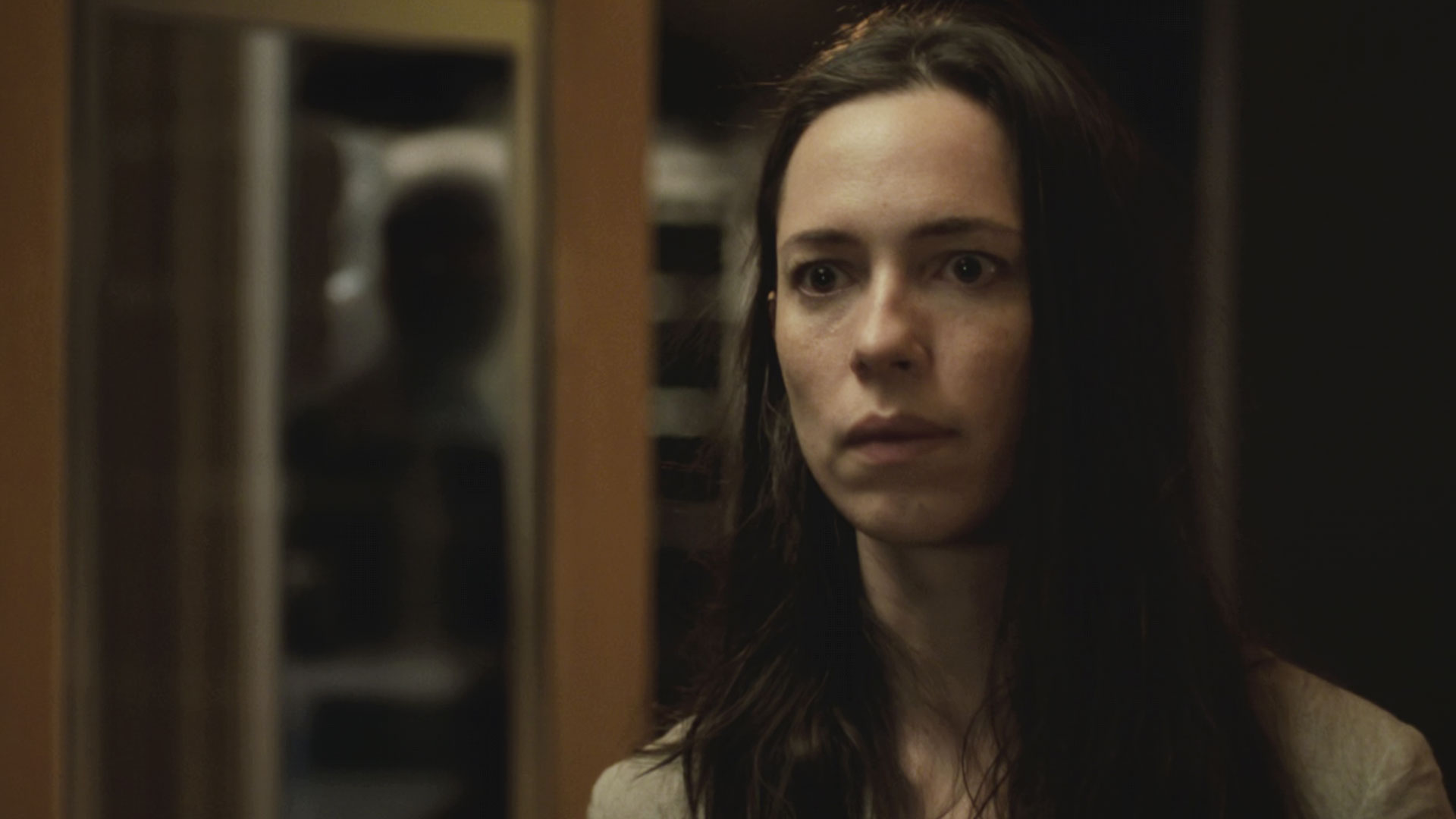
Beth still lives in the house that Owen built for her, a monument to their love now haunted by grief and sorrow. She sifts through his belongings, reliving memories in faded photographs and dusty videotapes, desperately searching for clues to understand why Owen chose to leave her alone in this world. Strange noises echo in the quiet corners, and a persistent chill lingers in the air, raising unsettling suspicions. Is she simply succumbing to grief’s distortions, or is something more sinister lurking in this house?

Amidst a pile of Owen’s belongings, Beth discovers his sketchbook, the one she gifted him for drawing the floor plans of their house. As she flips through its pages, a mixture of bewilderment and unease washes over her. Amongst familiar sketches of their home, lie several unfamiliar floor plans, each more unsettling than the last. One resembles a labyrinth, another inverts the familiar outline of their own house, and cryptic messages scrawl across the pages: “TRICK IT, DON’T LISTEN TO IT” and the enigmatic word “CAEDROIA.” Though their meaning eludes her, Beth can’t shake the feeling they hold the key to unlocking some dark secret Owen harbored.
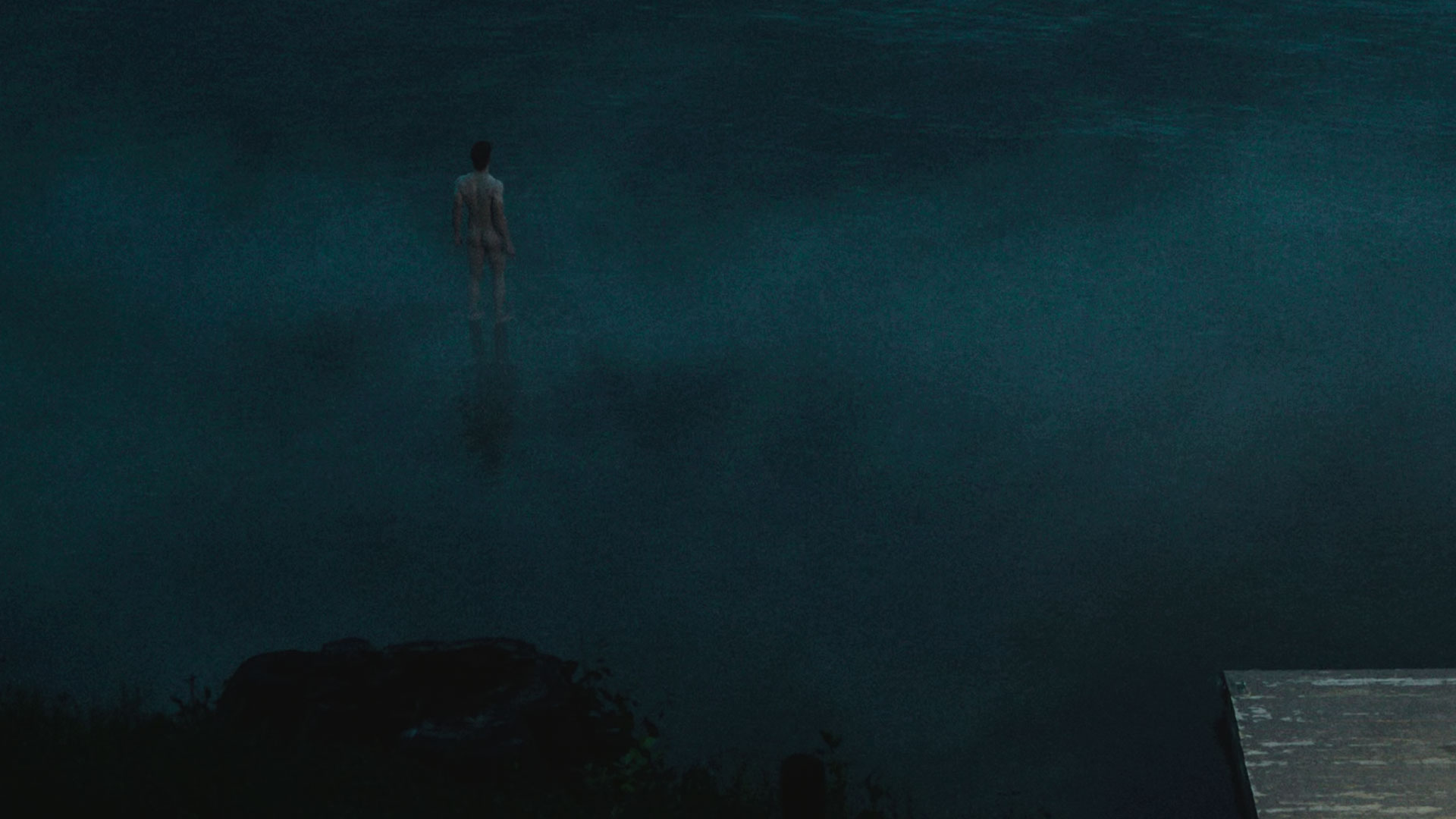
That night, Beth is jolted awake by the strains of Richard & Linda Thompson’s The Calvary Cross emanating from the downstairs speakers. A text message from Owen’s number flickers on her screen, urging her to come down. Fear grips her. Convinced it’s a cruel prank, she dials Owen’s phone. Her breath catches in her throat as the familiar voice on the other end asking her to walk to the window facing the lake. There, on the still surface of the water, stands Owen.
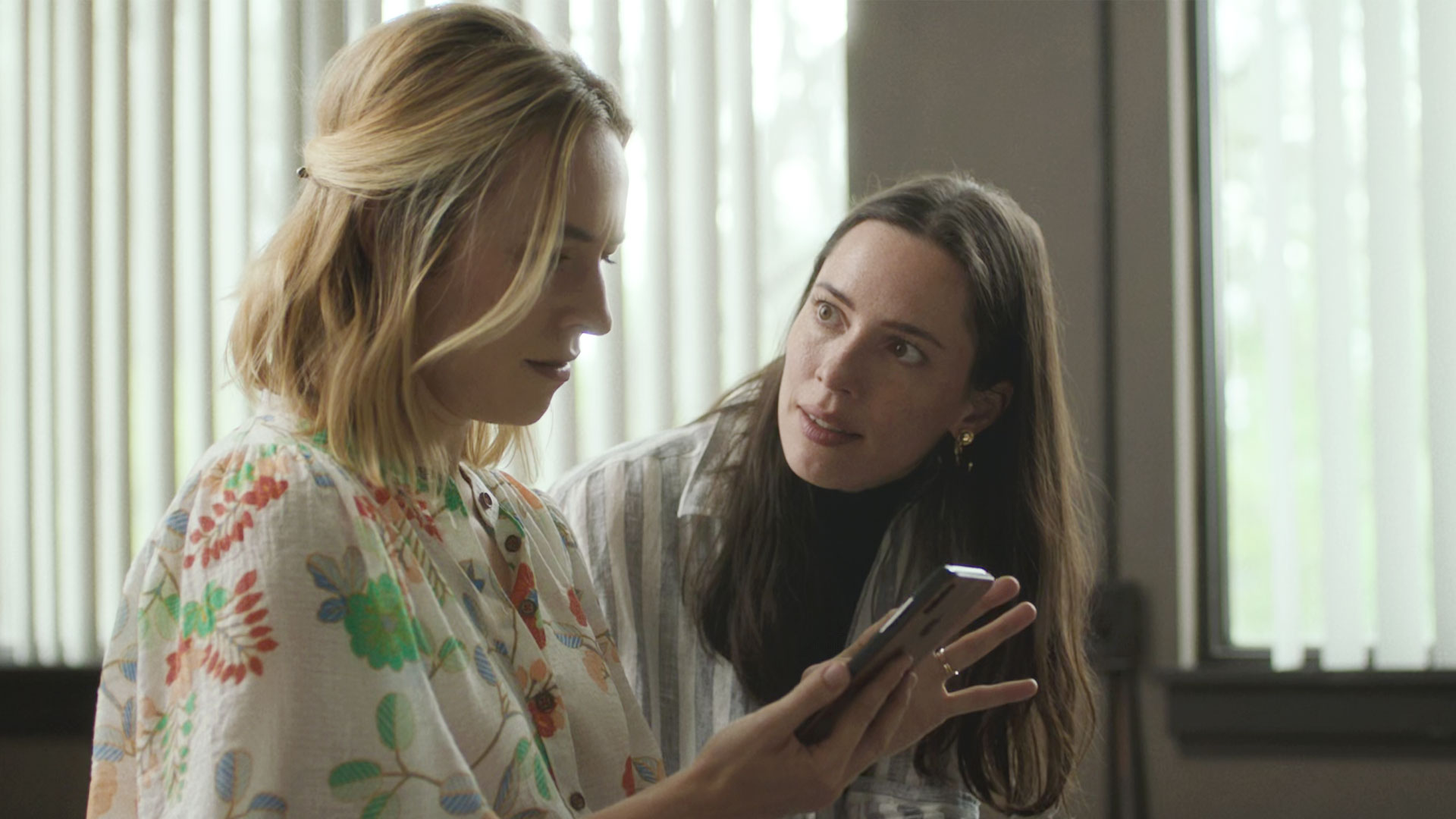
Rising from the cold bathroom floor, Beth fights off the lingering tendrils of her unsettling dream. The dream, so vivid it clings to her like cobwebs, left her questioning its reality. Fumbling for her phone, she scours her inbox for Owen’s text, but it is nowhere to be found. Just to be sure, she checks his phone too, but the message remains elusive. A photo, however, catches her eye – a picture of a woman, her doppelgänger in a dress she doesn’t have. Showing it to her best friend Claire (Sarah Goldberg), Beth insists it isn’t her, despite the uncanny resemblance. Claire urges her to let it go, digging into the past of someone who couldn’t defend himself is pointless. Instead, she offers a welcome distraction – drinks with the faculty tonight.
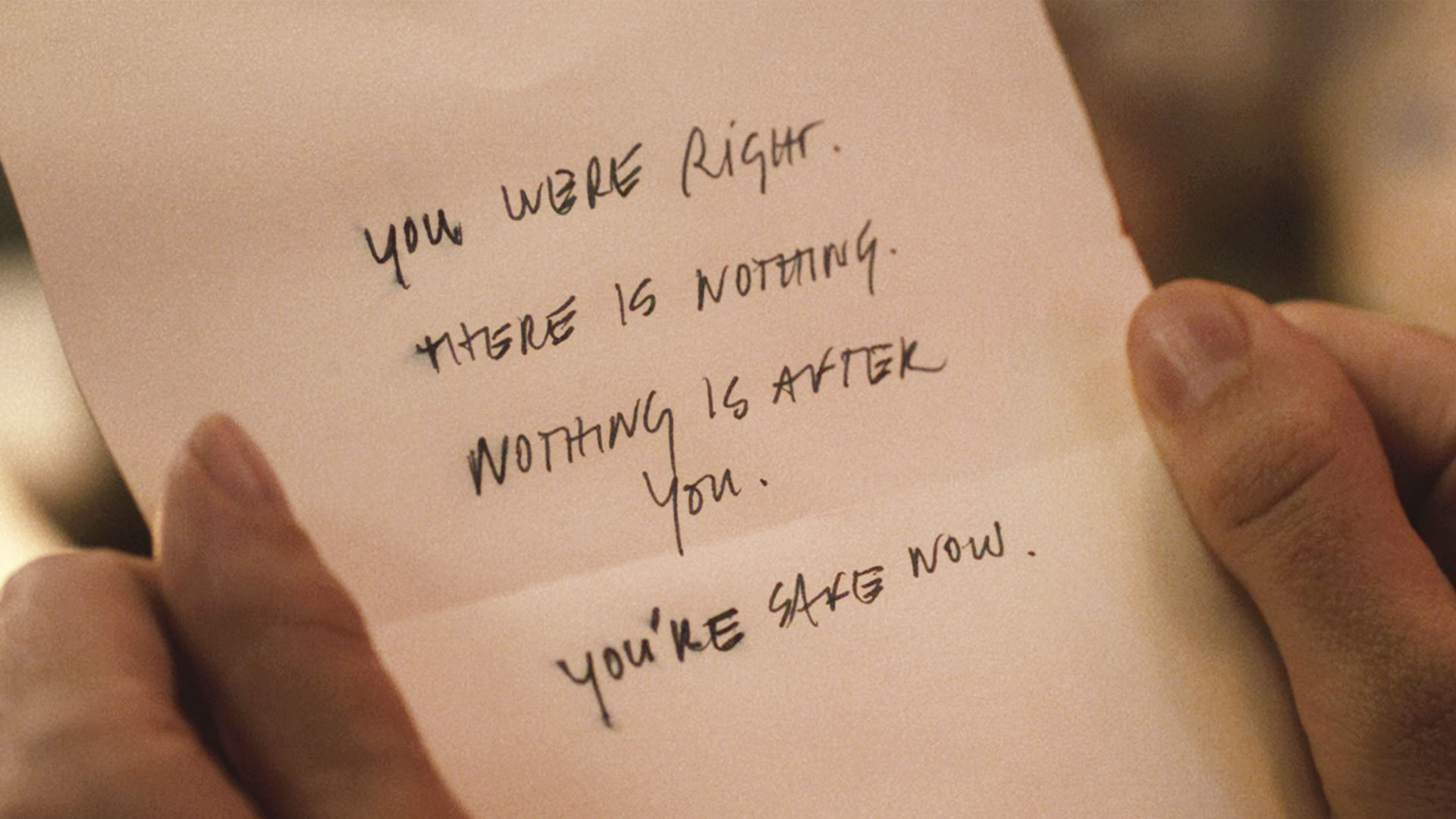
Beth confides in her friends, wondering if she might be sleepwalking, mirroring Owen’s old habit. Though sleepwalking isn’t contagious, the possibility nags at her. Before his death, Beth had battled depressive spirals, and Owen had been her anchor, pulling her back from the brink of negative thoughts. Now, she wonders if those dark thoughts had somehow clung to him, twisting him into darkness. Owen left a note for Beth containing four short sentences, which Beth tells everyone that she doesn’t know what those sentences mean.
YOU WERE RIGHT.
THERE IS NOTHING.
NOTHING IS AFTER YOU.
YOU’RE SAFE NOW.
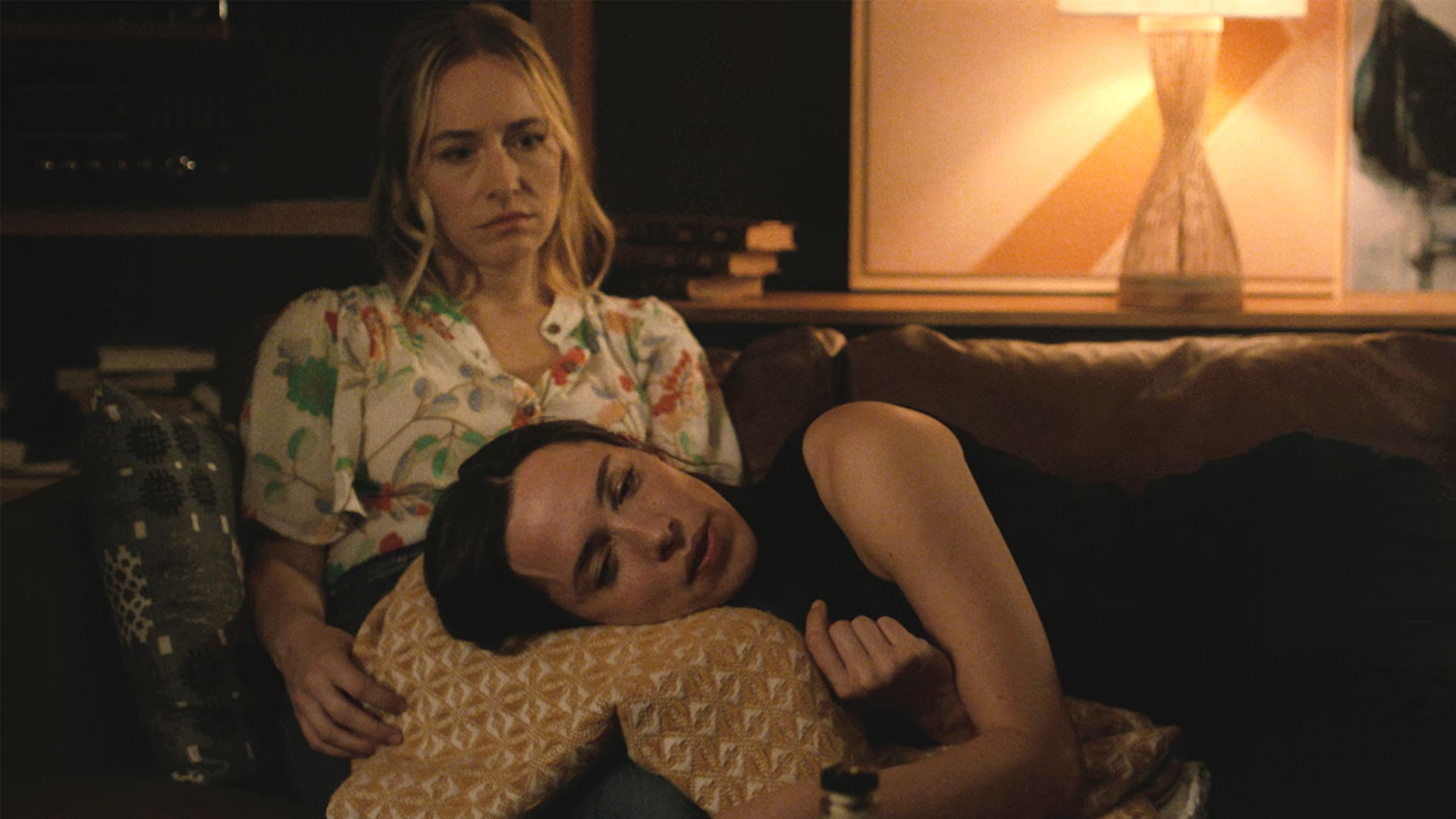
But the truth is, Beth knows exactly what Owen wrote about. Long ago, as a teenager, she’d experienced a harrowing car accident that stopped her heart for four minutes. When she revived, everyone bombarded her with questions about what she saw during that “death.” She always claimed that she could not remember anything. The truth, though, was etched in her memory: an overwhelming void, a stark absence of anything at all.
Owen was the only person I ever told. There’s nothing. I wish I could tell you something. A light at the end of the tunnel. There’s just tunnel. If it’s any consolation, Owen was never convinced. We agreed about most things but not that. Not what comes after. He wanted to believe in a better place. And he almost made me believe it too. But you can’t unknow what you know.
Beth is jolted awake in the middle of the night. This time, the voice demands her to open the door. She goes outside and looks across the lake that is supposed to be darkness. Instead, she sees a flickering light from a house she has never seen. The voice commands her to hop on a boat. Beth believes the voice to be Owen’s spirit trying to communicate with her, so she complies. Upon arriving on the other side of the lake, Beth discovers a house that looks exactly like her house, but everything is inverted like a mirror refection.

Beth’s gut twists with suspicion as she stares at the phone. The woman in Owen’s photo isn’t her. It can’t be. A relentless need to know devours her, driving her into the digital labyrinth of his computer. Hidden folders crack open, each click a morbid whisper of betrayal. Multiple photos of the same woman in different angles, alongside other women’s photos. Beth knows, with a sickening certainty, that she’s stumbled upon Owen’s dark, insatiable secret. Beth is determined to find out the whole truth, but the truth far more devastating than anything she could have imagined.
ํ
The American filmmaker David Bruckner’s supernatural psychological horror film, masterfully scripted by Ben Collins and Luke Piotrowski, is a masterclass in storytelling, weaving a chilling tapestry of suspense through ingenious sound design and Rebecca Hall’s phenomenal performance. Bruckner crafts a symphony of unease where whispers of unseen footsteps, creaking floorboards, and eerie wind moans orchestrate a crescendo of tension. Rebecca Hall delivers a tour-de-force performance, embodying the unraveling psyche of a woman haunted by unseen forces. Her every twitch and glance transmits a raw vulnerability that makes us feel every creak of the floorboard, every gust of wind, as if we were trapped alongside her in this waking nightmare.
A particularly memorable scene utilizes the anamorphosis technique, reminiscent of Felice Varini‘s works, combining it with visual effects and a haunting soundtrack to create a truly terrifying moment.
I especially love how the filmmaker weaves dream images into reality, blurring the lines to the point where we question whether the protagonist is awake or asleep. The film also plays ingeniously with the word “Nothing,” subverting its common meaning of emptiness or void to evoke both Death itself and the invisible realm it signifies. Only Beth, having glimpsed the other side during her four-minute brush with mortality, can perceive this unseen entity in the vast emptiness. This unique perspective weaves the concept of nothingness into the very fabric of the film, making it a hauntingly layered exploration of life, death, and the spaces in between.
THE NIGHT HOUSE stands out as a haunting and atmospheric horror film, eschewing jump scares and grotesque monsters for a chilling exploration of grief, memory, and the lingering echoes of trauma. The film’s ambiguous ending leaves viewers to grapple with the question of whether Beth’s unsettling encounters are glimpses of the supernatural or manifestations of her own profound grief, making it a thought-provoking and emotionally resonant experience.

The NIGHT HOUSE premiered at the Sundance Film Festival on 24 January 2020. The film was theatrically released in the United States on 20 August 2021.




